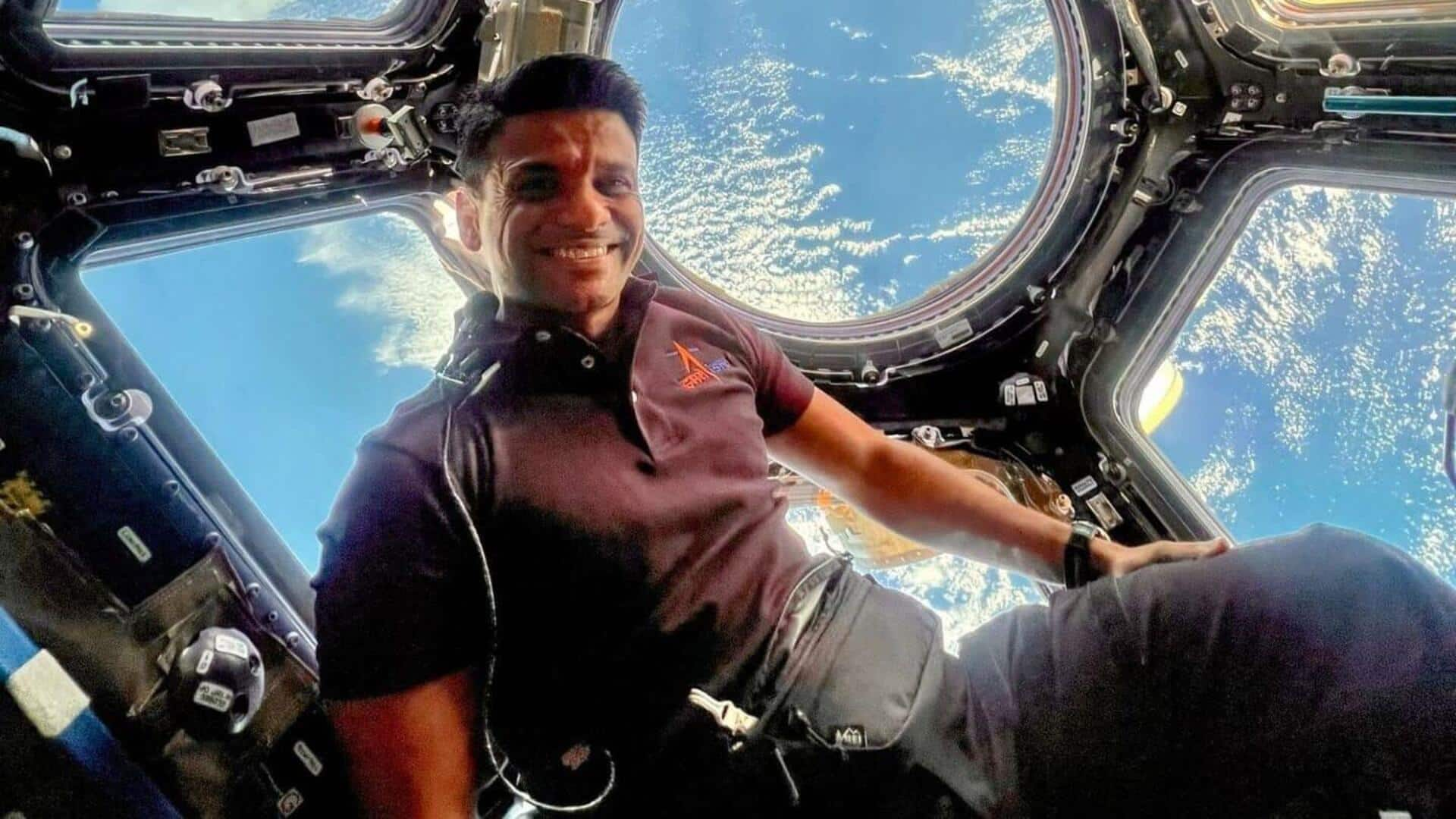
7 India‑specific experiments conducted by Shubhanshu Shukla during ISS mission
What's the story
The Axiom-4 mission, which saw Group Captain Shubhanshu Shukla become the first Indian to visit the International Space Station (ISS), was more than just an exploratory journey. It was a scientific endeavor that included over 60 experiments at the ISS. Among these, seven were specifically designed by Indian institutes. The main goal of these experiments was to study how microgravity affects humans and other living organisms.
Experimental endeavors
List of 7 Indian experiments
The seven Indian experiments conducted by Shukla and his fellow astronauts were: 1) Impact of microgravity radiation on edible microalgae, 2) Sprouting salad seeds in space for crew nutrition, 3) Survival and reproduction of the eutardigrade paramacrobiotus in space, 4) Effect of metabolic supplements on muscle regeneration under microgravity, 5) Human interaction with electronic displays in microgravity, 6) Growth responses of cyanobacteria on urea and nitrate in microgravity, and 7) Impact of microgravity on food crop seeds.
Strategic importance
Mission supports India's future space endeavors
Professor Aloke Kumar from IISc Bengaluru, emphasized the importance of the Axiom-4 mission in supporting India's future space endeavors. He said, "For India, the experiments at Axiom-4 will provide learnings that will go into supporting India's Gaganyaan, space station and lunar landing programs." This mission is seen as a significant step forward in India's human spaceflight ambitions. Shukla and other crew members have reached Earth safely and will begin a 7-day rehabilitation program.